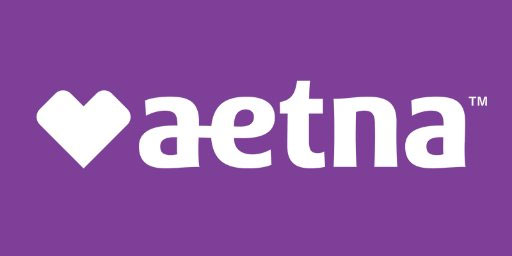Money market funds are mutual funds that put money into short-term, highly liquid securities. These securities include cash, cash equivalents, and debt-based securities with short maturity and good credit rating. Money market funds provide investors with great liquidity and very lower risk-associated investments.
A money market fund and a money market account (MMA) are not the same, despite their names being similar. An investment that an investment fund firm sponsors is known as a money market fund. As a result, there is no principal guarantee. In contrast, an interest-bearing savings account is referred to as a money market account. Financial organizations offer money market accounts.
Federal Deposit Insurance Corporation (FDIC) insures money market funds and limits their transaction privileges.
How do Money Market Funds Work?

A money market fund works similarly to a standard mutual fund. Money market funds issue redeemable shares to investors. They must abide by the rules established by financial regulators, such as those set by the U.S. Securities and Exchange Commission (SEC).
Money market funds must buy securities having maturities of 13 months or less, or occasionally 25 months if the investment is government security. A fund's investment portfolio must have a weighted average maturity of 60 days or less. These restrictions ensure that the portfolio won't be constrained by long-term investments and maintain the general liquidity of money market funds.
Money market funds allow investors to invest in the following categories of debt-based financial securities:
- Bankers' Acceptances (B.A.) are short-term loans that a commercial bank guarantees.
- Certificates of Deposit (C.D.s): Short-term savings certificates issued by banks
- Unguaranteed short-term corporate debt under the commercial paper
- Short-term government stocks purchased through repurchase agreements
- Short-term government loan concerns involving U.S. Treasuries
Since the returns from these securities depend on the current market interest rates, interest rates also affect the overall earnings from money market funds.
Types of Money Market Funds

Money market funds are divided into the following types depending on the type of invested securities, the maturity period, and other characteristics.
Prime Money Market Fund
Commercial paper and floating-rate debt of non-Treasury assets, such as those issued by U.S. government agencies, corporations, and government-sponsored enterprises, are the investments made by prime money funds.
Government Money Fund
A government fund makes an investment using at least 99.5% of its securities in cash, government debt, and fully-collateralized repurchase agreements.
Treasury Money Market Fund
An investment in Treasury securities, such as Treasury bills, Treasury notes, and Treasury bonds, is made through a Treasury fund.
Tax-Exempt Money Fund
Earnings from a tax-exempt money market fund are excluded from federal income tax in the United States. Depending on the specific securities a money fund invests in, it is exempt from federal and state income taxes. Such money market funds are typically composed of municipal bonds and other debt securities.
Some money market funds have high minimum investment requirements (typically $1 million) to draw institutional capital. However, their low minimums make additional money market funds available to individual investors as retail funds.
Advantages and Disadvantages of Money Market Funds
Advantages
- Better Returns than Bank Accounts
Similar investing options to money market funds include bank money market accounts, enhanced cash funds, and ultrashort bond funds. These investment options seek high returns while also investing in a wider range of assets.
- Very Low Risk
A money market fund provides investors with a secure means of making modest investments in highly liquid, debt-based securities that are safe and secure. Money market funds are classified as low-risk, low-return investments in mutual fund-like products.
- High Liquidity
Investors find money market funds appealing since no loads are attached—neither entry nor exit fees. Many funds also offer tax-advantaged profits to investors by purchasing municipal securities that are free from federal income tax (and in some cases at the state level, too).
Disadvantages
- Not FDIC Insured
It's vital to remember that while online savings accounts, certificates of deposit (CD), and money market deposit accounts are all insured by the FDIC', money market funds are not.
Money market funds are subject to regulation under the 1940 Investment Company Act, just like other investment securities.
- Sensitive to interest rate fluctuations
An active investor with the time and knowledge to scout out the finest short-term debt securities—offering the best interest rates at their selected levels of risk—may want to invest independently in the many available instruments. In contrast, a less experienced investor would like to use money market funds and hand off the money management responsibility to the fund managers.
- No capital appreciation
Many investors prefer to invest substantial sums of money into these funds for short-term investments. Money market funds, however, are not appropriate for long-term investing objectives like retirement planning. This is because they don't give substantial capital growth.
Although fund shareholders typically have unlimited access to their funds, there may be a cap on the number of withdrawals they can make in a given time frame.
Are Money Market Funds Safe?
With a target share price of $1, money market funds are typically one of the safest financial investments. Money market funds have only briefly fallen below this level (referred to as "breaking the buck") during financial crises and have immediately recovered.
Money market funds invest in low-risk securities with short maturities, making them comparatively secure.
How to Buy Money Market Funds?
An investor can buy money market funds differently, such as from a company like BlackRock, Vanguard, a bank, or your online brokerage account. The online broker that most likely has funds available from various providers will give you the most possibilities.
Consider acquiring the funds through a regular or Roth IRA if you want to use them for retirement plans to reduce your taxes on returns and withdrawals.
Bottom Line
Money market funds won't make you rich. Still, they will offer higher returns at little risk, making them an excellent choice for retirees and people setting aside money for short-term needs or creating an emergency fund.



